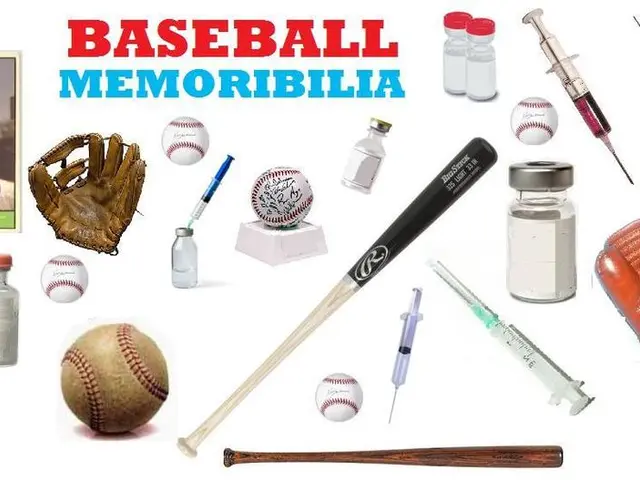Uncontrolled Use of Medication Due to Social Media Influx Leads to Hazardous Misuses
Revised Article
Hey there, let's talk about a not-so-great aspect of social media - dangerous medication misuse trends that have become popular, putting people's health at risk.
Social media, as a platform for trends, has some dark corners too. Trends involving over-the-counter medications, particularly among young folks, can lead to serious trouble. Take, for instance, the absurd idea of cooking chicken in NyQuil, a common cold and flu medicine. Sounds crazy, right? But it's a dangerous game when you tinker with medication's chemical properties by boiling it. Even inhaling the fumes while cooking can lead to nasty health problems.
Another trend gets people to take huge amounts of allergy medicine to experience hallucinations. This, quite predictably, resulted in severe poisoning cases, emergency hospital visits, and even fatalities. Health officials had to issue warnings to prevent more tragedies.
The problem lies in the easy accessibility of these medications. Unlike prescription drugs, over-the-counter meds are common household items and are easily obtained. This makes them a prime target for misuse, especially when peer pressure comes into play. A teen, who might not usually be curious about drugs, might be influenced by online trends and decide to give it a try.
Parents and caregivers can take steps to minimize the risk. Keeping medications safely locked away or out of easy reach can prevent impulsive decisions. It's also crucial to have open conversations about the dangers of misusing medications. Kids and teens need to understand that just because a drug doesn't need a prescription doesn't mean it's harmless. Overdoses and long-term health effects are definite possibilities, even for drugs meant to treat minor ailments.
If someone shows signs of overdose, such as confusion, difficulty breathing, or seizures, immediate medical help is essential. Dialing 911 or contacting poison control can make the difference between life and death. Acting quickly can prevent things from getting worse.
Beyond individual action, we need more awareness and education. Social media platforms have a role to play in the spread of such dangerous trends. Some have taken steps to remove harmful content, but new challenges keep popping up. Schools and communities can help by educating young people about the risks and encouraging critical thinking about what they see online.
Young people are often drawn to risky fads on social media. Many of these internet crazes thrive on views, likes, and comments, creating the illusion that everyone is participating. The influence can be powerful, pushing young users to act before considering the consequences. The more extreme or sensational the challenge, the faster it spreads, making it even more dangerous.
What starts as a viral trend can lead to permanent harm. Misusing medication is not a game. By staying informed, having open discussions, and keeping an eye on what's happening online, parents and caregivers can help prevent needless tragedies. By understanding the risks, folks are less likely to fall for something that could have life-threatening consequences. Spreading awareness and encouraging responsible behavior can save lives.
Enrichment Insights:
- Some harmful social media trends involving medication misuse include viral challenges with over-the-counter medications like the Benadryl challenge, promotion of prescription drug misuse by influencers, digital drug marketplaces using platforms like Instagram and Snapchat, and targeted advertising of prescription drugs.
- These trends can lead to serious health risks such as overdose, addiction, respiratory depression, fentanyl poisoning, toxicity, seizures, coma, and death.
- The prevalence of fentanyl in counterfeit pills is particularly concerning, as even a single pill can be fatal.
- Critical thinking, open communication, and increased vigilance regarding the sources and safety of medications are crucial to prevent medication misuse.
- Social media, beyond entertainment and health-and-wellness trends, also perpetuates dangerous fitness-and-exercise routines that can lead to physical harm, such as thebench-press-car challenge or the Tide Pod eating challenge.
- In the realm of mental health, social media can exacerbate feelings of low self-esteem and anxiety through comparison to idealized online personas, thereby contributing to the escalation of mental health issues among young users.
- Another insidious trend is the promotion of disordered eating patterns, such as extreme dieting, exercising excessively, and purging, often disguised as nutrition advice or weight-loss tips. These trends can lead to severe health problems, including malnutrition, organ failure, and even death.







